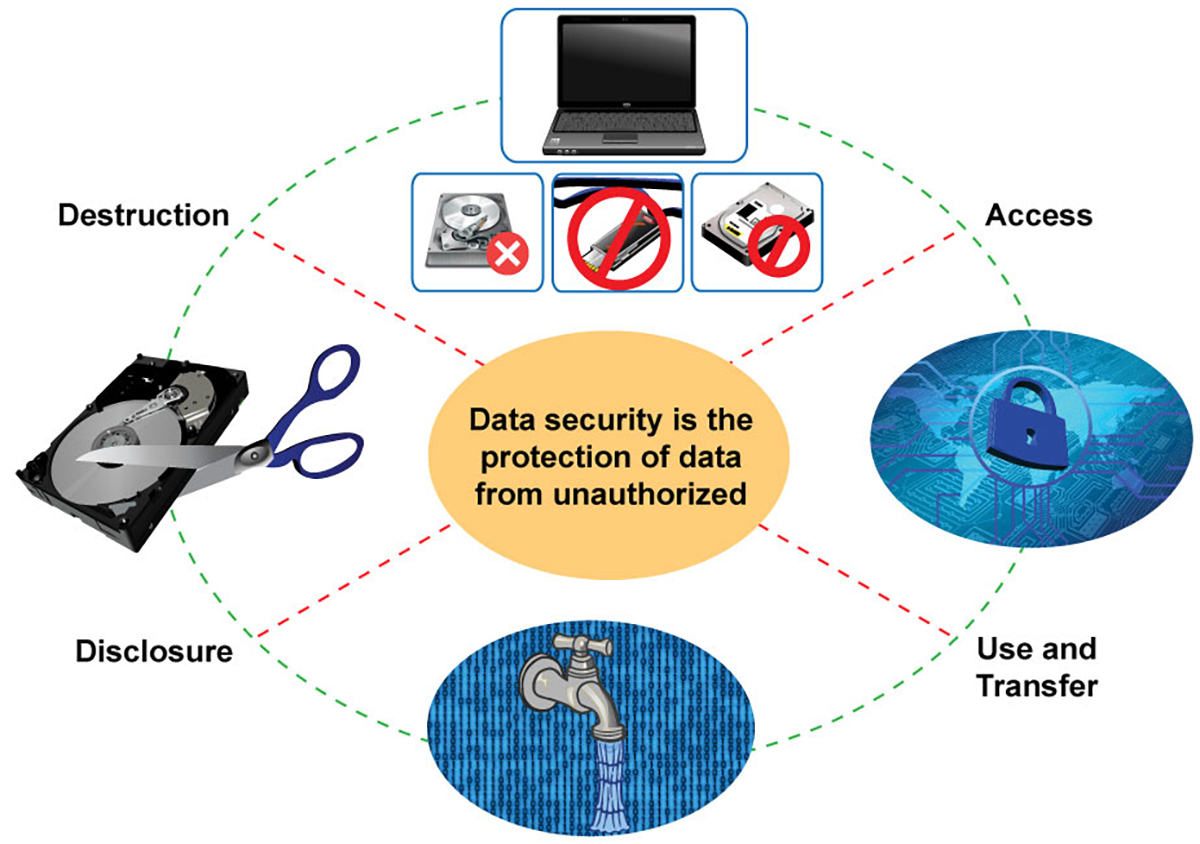Crucial Cyber Security Practices for Effective Data Destruction Methods
Wiki Article
The Vital Nature of Information Devastation in Upholding Computer System Protection Solutions and Protecting Versus Unauthorized Gain Access To
In an age where information breaches and identification burglary are increasingly common, the importance of efficient data devastation can not be overstated. Organizations needs to recognize that the failure to correctly dispose of sensitive info positions not only legal and economic risks however also a prospective erosion of client trust fund. Numerous methods, from information cleaning to physical damage, serve as vital safeguards versus unauthorized gain access to. However, understanding the effects of data destruction techniques and conformity with guidelines increases important inquiries concerning the competence of present techniques and their long-term practicality in the face of progressing risks.Value of Data Devastation
In a progressively electronic world, the relevance of data damage can not be overemphasized. As companies accumulate substantial amounts of delicate info, the potential effects of falling short to effectively handle and dispose of that information end up being significantly serious. Information breaches, identification theft, and company espionage posture significant hazards, emphasizing the need of efficient information destruction techniques.
Furthermore, as modern technology advances, so also do the methods through which harmful actors seek to manipulate sensitive info. Organizations should continue to be positive and attentive in their data damage methods to protect versus these evolving hazards. By focusing on information devastation, business not only protect their possessions yet also foster depend on among stakeholders and clients, demonstrating a commitment to accountable information management and protection methods.
Approaches of Effective Information Destruction
To ensure the irreversible and full devastation of sensitive information, companies can use a variety of effective methods tailored to their particular requirements. One of one of the most usual techniques is data cleaning, which includes utilizing specialized software application to overwrite existing information numerous times, making healing basically difficult. This is specifically valuable for solid-state drives and hard drives, where typical deletion methods are poor.One more efficient approach is degaussing, which makes use of solid magnetic fields to interfere with the magnetic domain names on storage space media, making the data irretrievable. This technique is specifically matched for magnetic storage space gadgets, such as disk drive and hard disks.
Physical damage is additionally a feasible alternative, involving the shredding, crushing, or incineration of storage space gadgets. This technique assurances that data can not be recovered, making it ideal for organizations dealing with highly delicate details.

Compliance With Information Protection Laws
Organizations have to not just focus on reliable information destruction techniques but likewise guarantee conformity with data defense guidelines that govern how delicate information is managed and thrown away. Adhering to these regulations is vital for guarding personal data and maintaining client depend on. Rules such as the General Information Security Law (GDPR) in the European Union and the Medical Insurance Transportability and Liability Act (HIPAA) in the United States impose stringent click this guidelines on information management, which include requirements for the secure disposal of sensitive details.To attain conformity, organizations have to implement extensive data destruction policies that line up with these legal frameworks. This includes determining data that calls for destruction, developing methods for secure methodsâEUR" such as shredding physical media or making use of software that fulfills sector standards for information wipingâEUR" and preserving comprehensive records of damage tasks. Routine audits must be performed to ensure adherence to these plans and to recognize any prospective locations for enhancement.
Failure to comply with information defense laws can lead to substantial lawful implications, including significant fines and damages to an organization's credibility. Incorporating compliance into information damage techniques is not only a lawful commitment however also a crucial element of a robust info security method.
Repercussions of Poor Data Handling
Poor information handling can lead to serious effects that prolong past immediate operational troubles. Organizations may encounter substantial financial losses because of data violations, which usually result in expensive removal initiatives, legal fees, and governing fines. These monetary effects can stress sources and hinder development, ultimately impacting an organization's lower line.
Moreover, bad information handling can severely damage an organization's track record. Partners, stakeholders, and customers may shed trust fund in an entity that fails to protect sensitive information, bring about lowered consumer commitment and prospective loss of business opportunities. This erosion of trust fund can take years to restore, if it can be recovered in any way.
In addition, companies can face lawful implications arising from non-compliance with data security policies. Such infractions may lead to fines and investigations, intensifying the financial concern and further tarnishing the company's photo.
In the realm of cybersecurity, poor information administration practices can produce susceptabilities that make systems a lot more prone to unauthorized accessibility and cyberattacks. Ultimately, these consequences underscore the crucial significance of applying robust data taking care of procedures to guard delicate details and keep business integrity.
Best Practices for Secure Data Disposal


First of all, data must be categorized according to its sensitivity. Delicate info requires a lot more rigorous disposal methods, such as shredding physical files and using advanced software program for electronic information wiping. Employing licensed data damage services makes certain conformity with industry guidelines and standards.
Second of all, organizations should carry out a data disposal plan that mandates routine audits. This policy should outline the treatments for data retention and damage, making certain that outdated information is disposed of without delay and firmly. Training employees on these procedures is important to promoting a society of safety understanding.
Finally, preserving thorough records of disposed data enhances responsibility and gives a clear audit trail. This documentation should include the kind of data damaged, the technique made use of, and the date of disposal.
Final Thought
To conclude, the important of reliable data damage appears in its function in improving computer safety and security services and alleviating unapproved gain access to dangers. look at this site Embracing robust approaches such as information wiping, degaussing, and physical devastation, together with compliance with policies like GDPR and HIPAA, is you can check here important for safeguarding sensitive information. Disregarding correct data disposal methods can lead to severe effects, consisting of information violations and legal repercussions. Implementing ideal practices in protected data disposal eventually strengthens business honesty and client depend on.In an era where data breaches and identification theft are progressively widespread, the significance of efficient data damage can not be overemphasized. data destruction. Information violations, identification theft, and business reconnaissance posture significant dangers, underscoring the requirement of effective information damage methods
Conformity with guidelines such as GDPR and HIPAA requireds that organizations carry out rigid information security actions, including the protected destruction of data at the end of its lifecycle.
By prioritizing data devastation, firms not just secure their properties but also foster count on among clients and stakeholders, demonstrating a commitment to responsible information administration and protection techniques.
Organizations should not just concentrate on reliable data devastation techniques however likewise guarantee compliance with information security laws that control exactly how sensitive information is managed and disposed of.
Report this wiki page